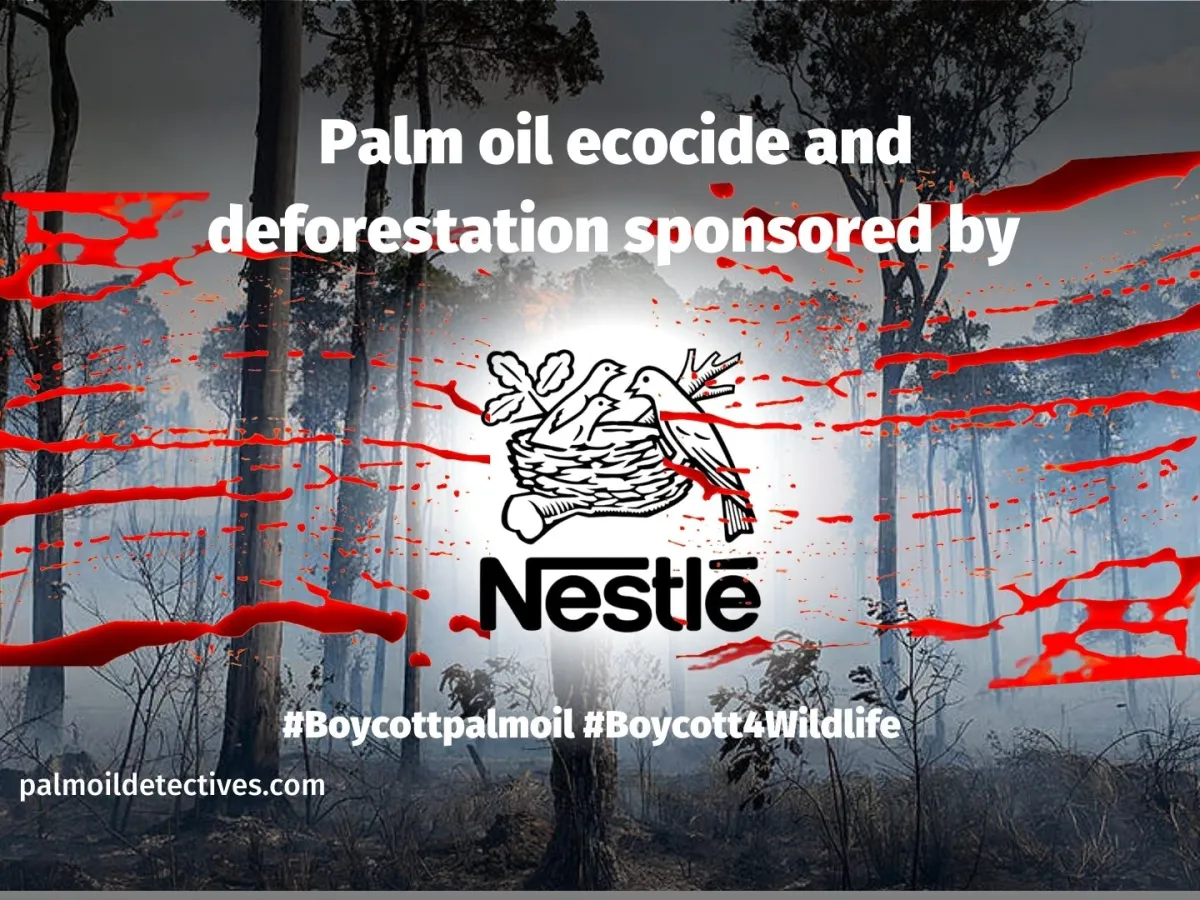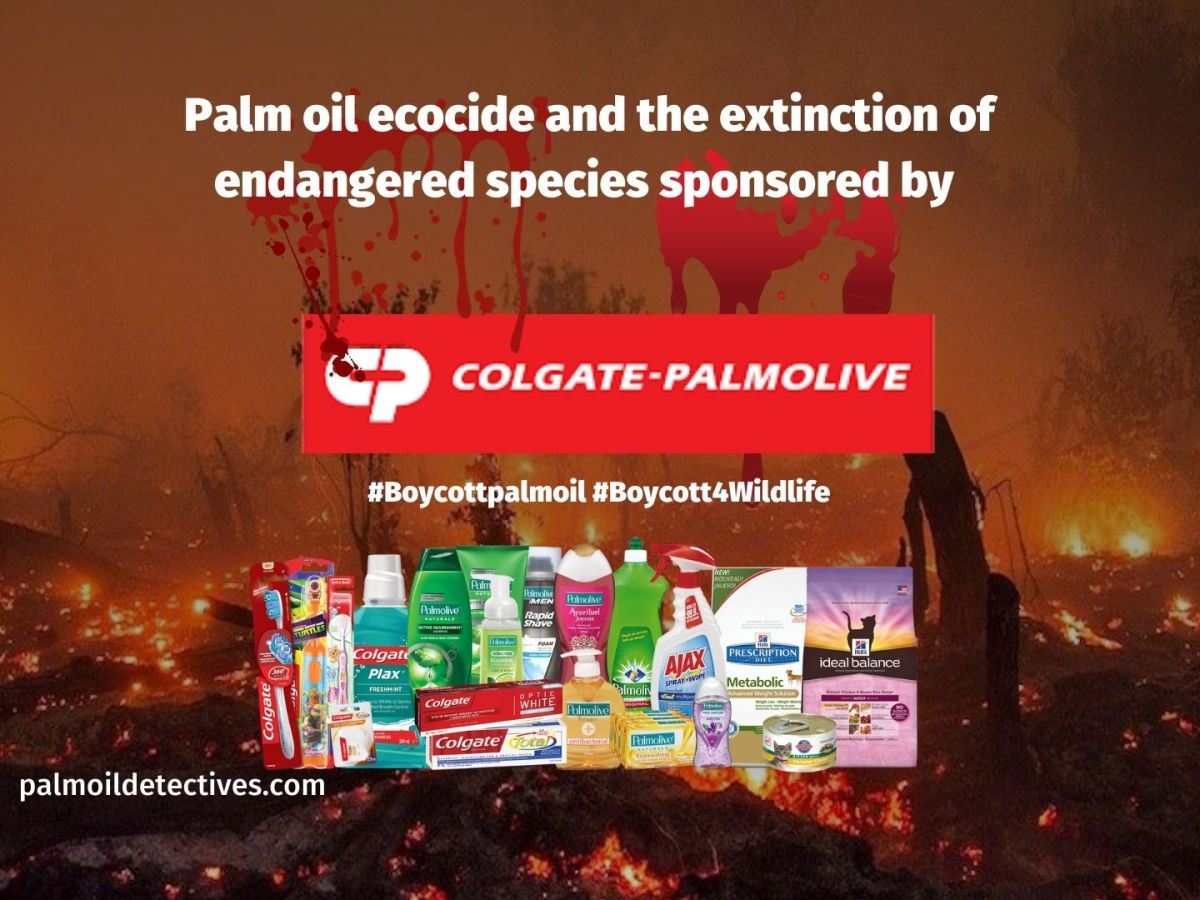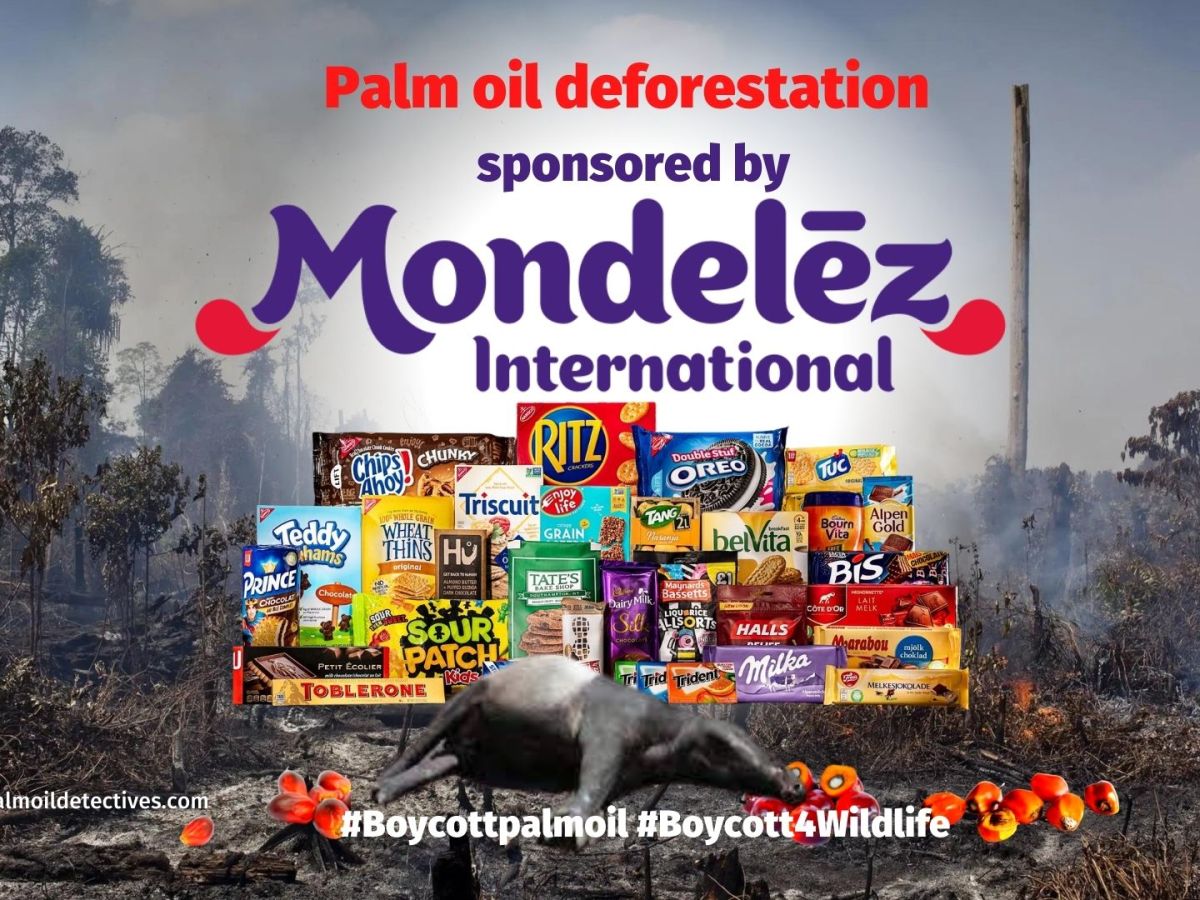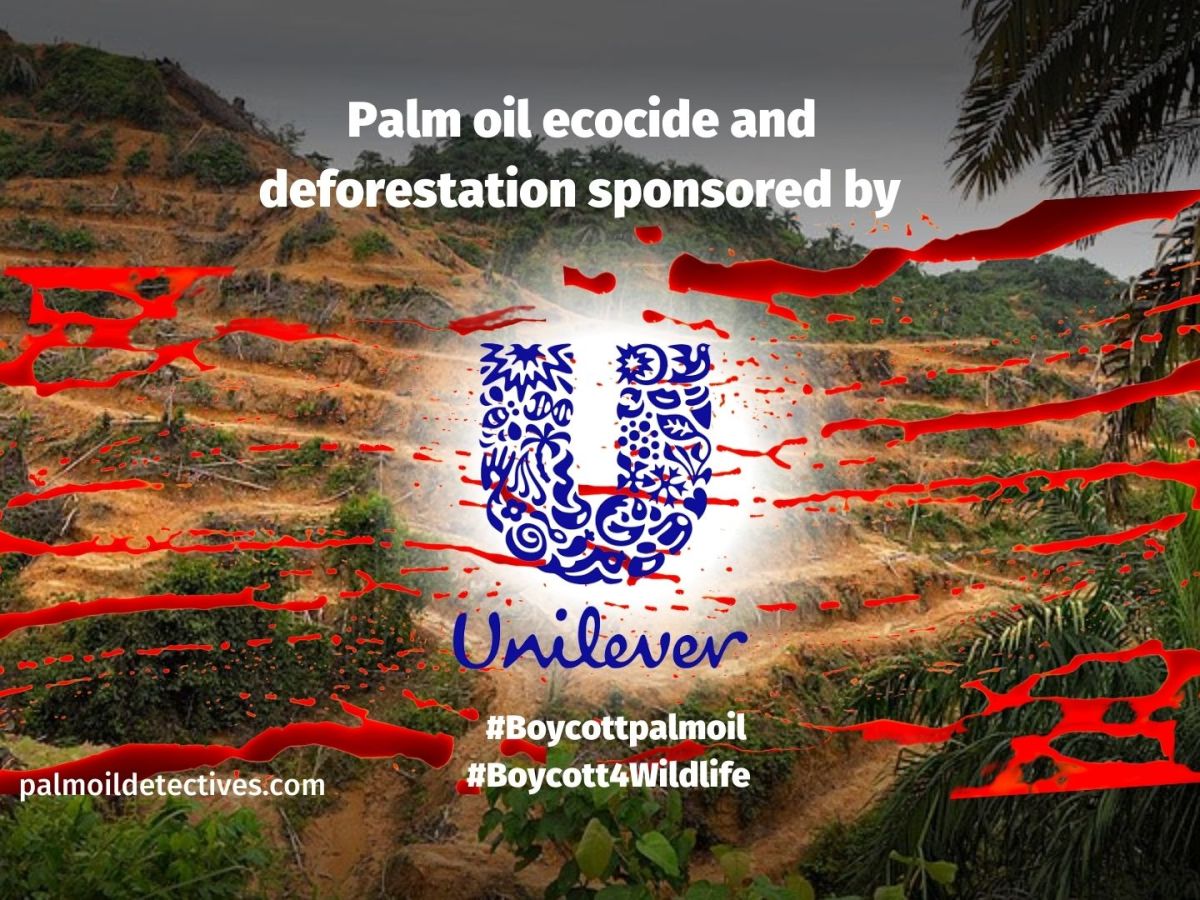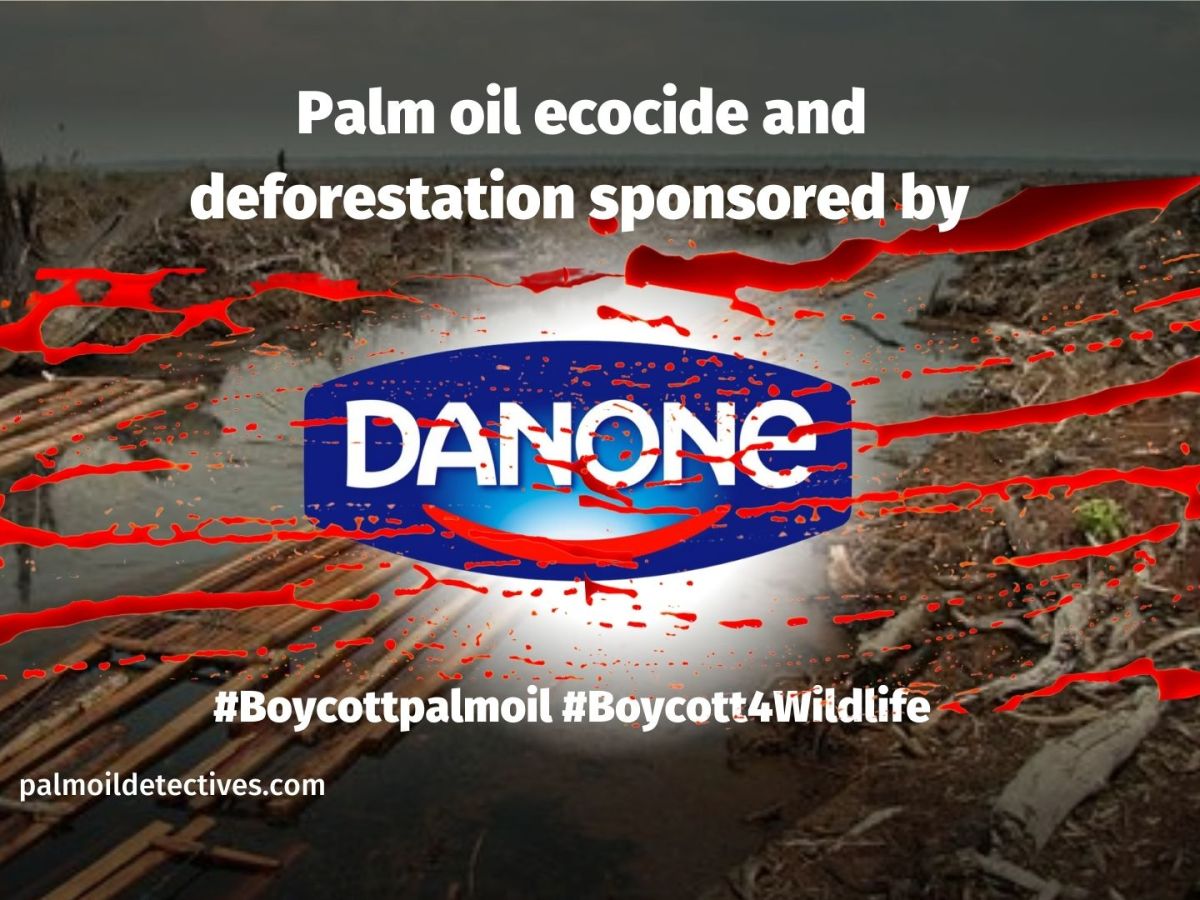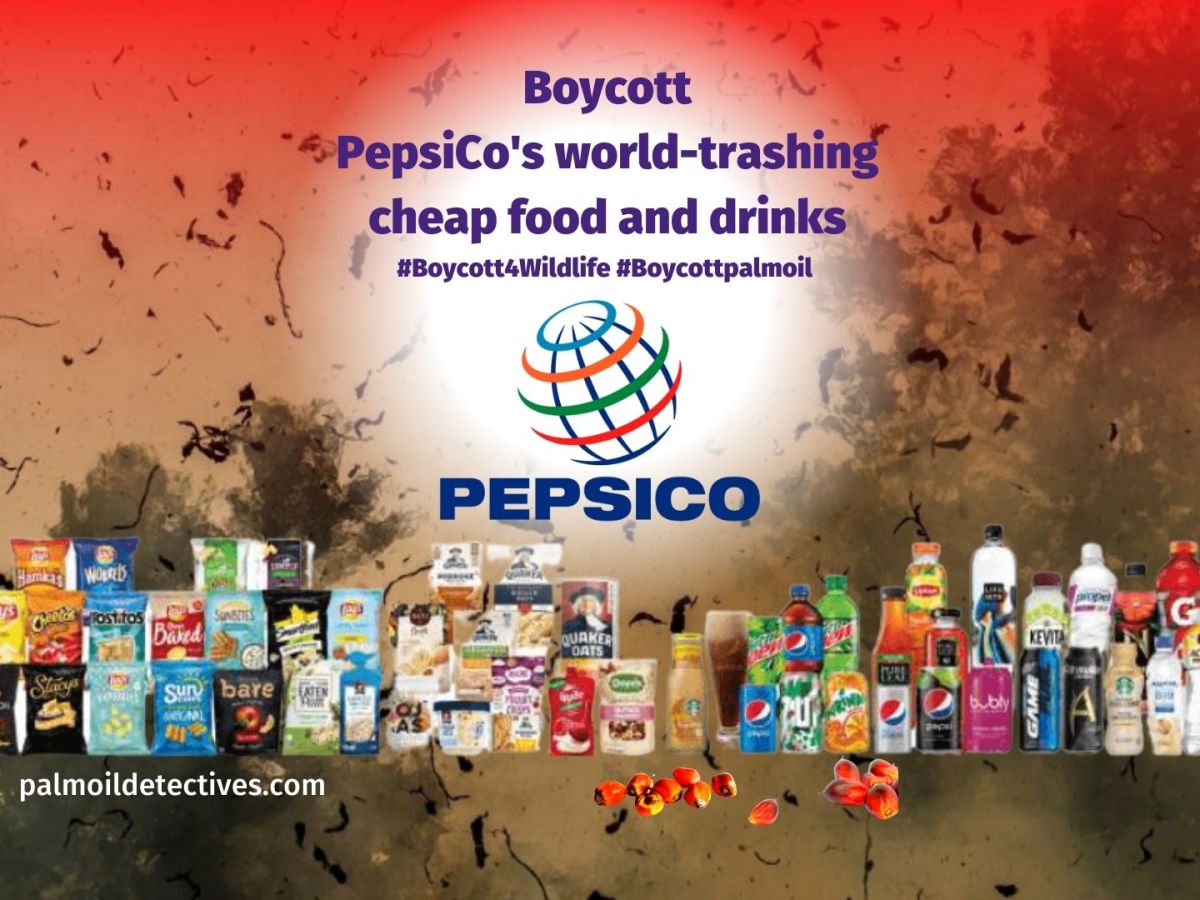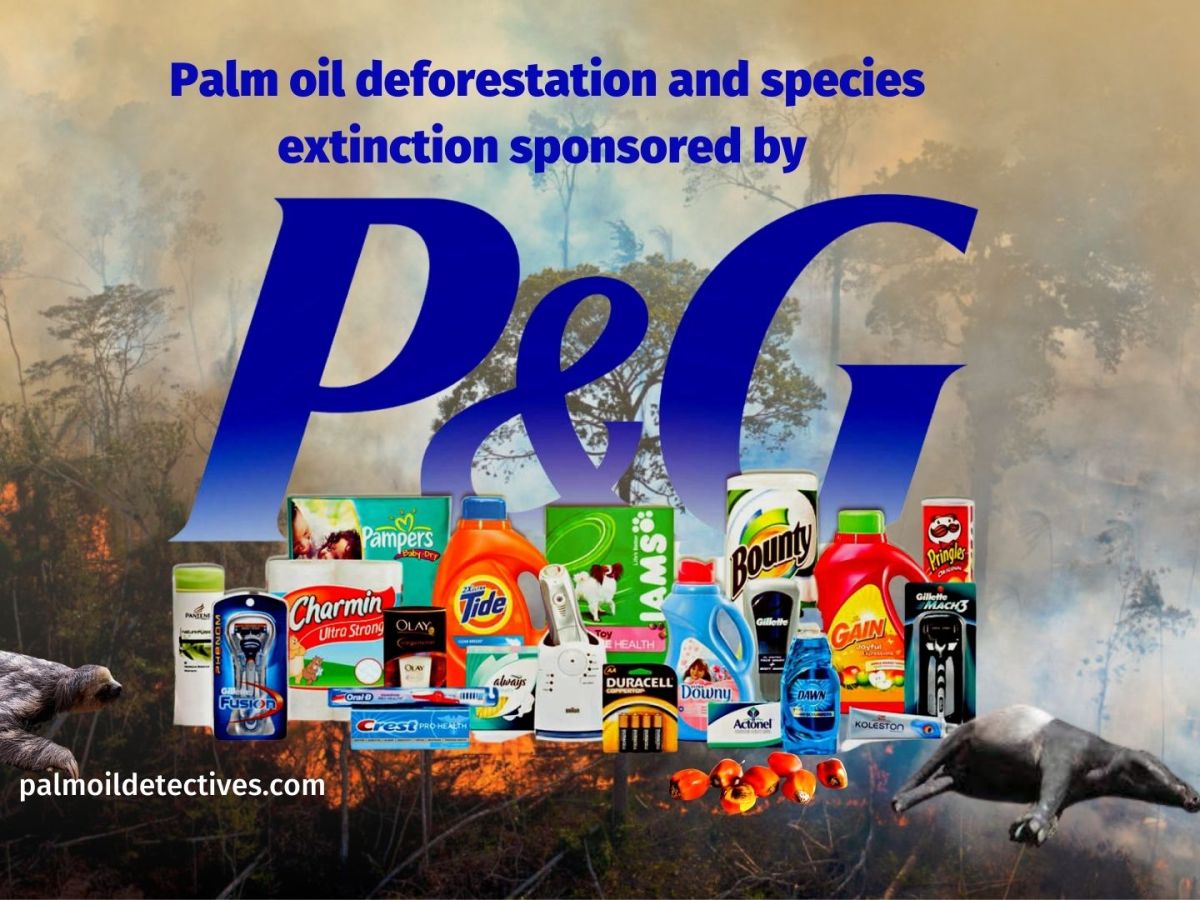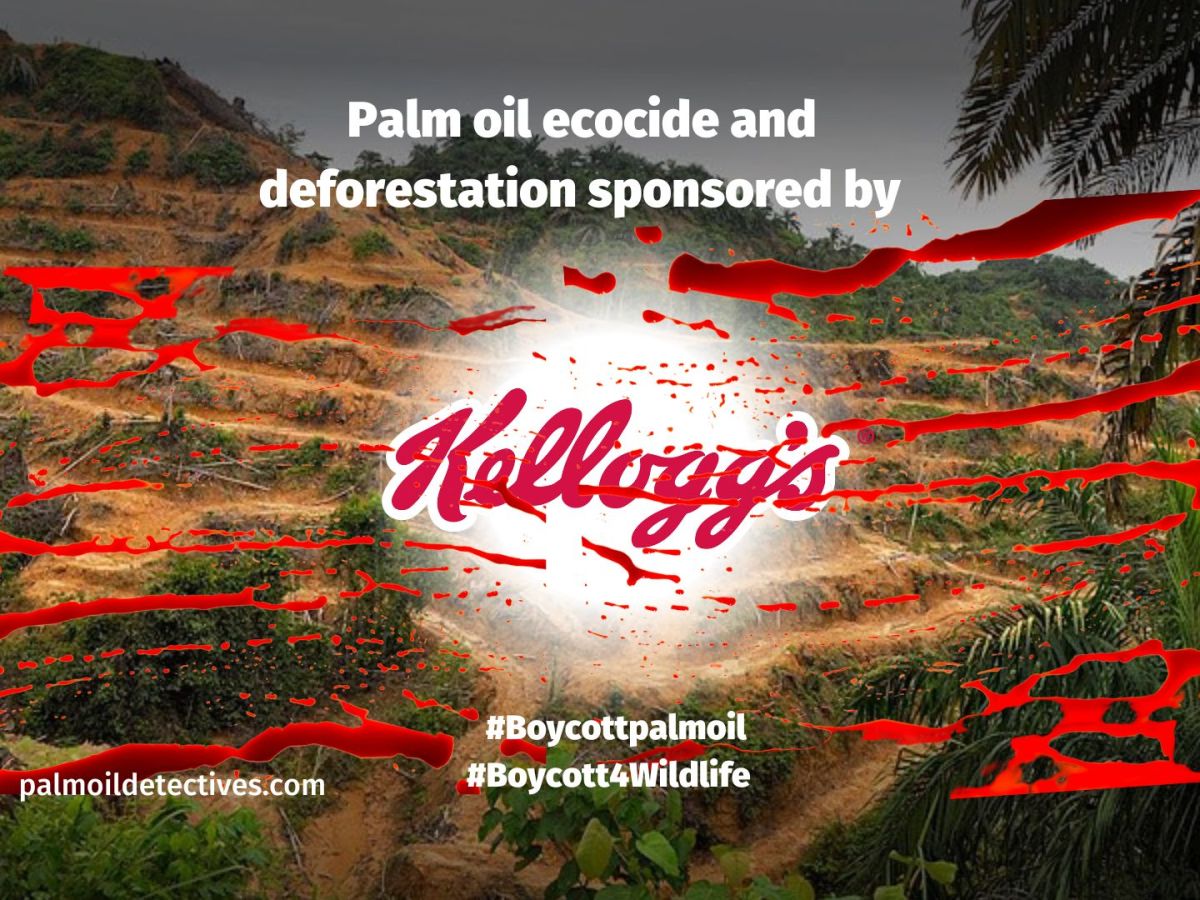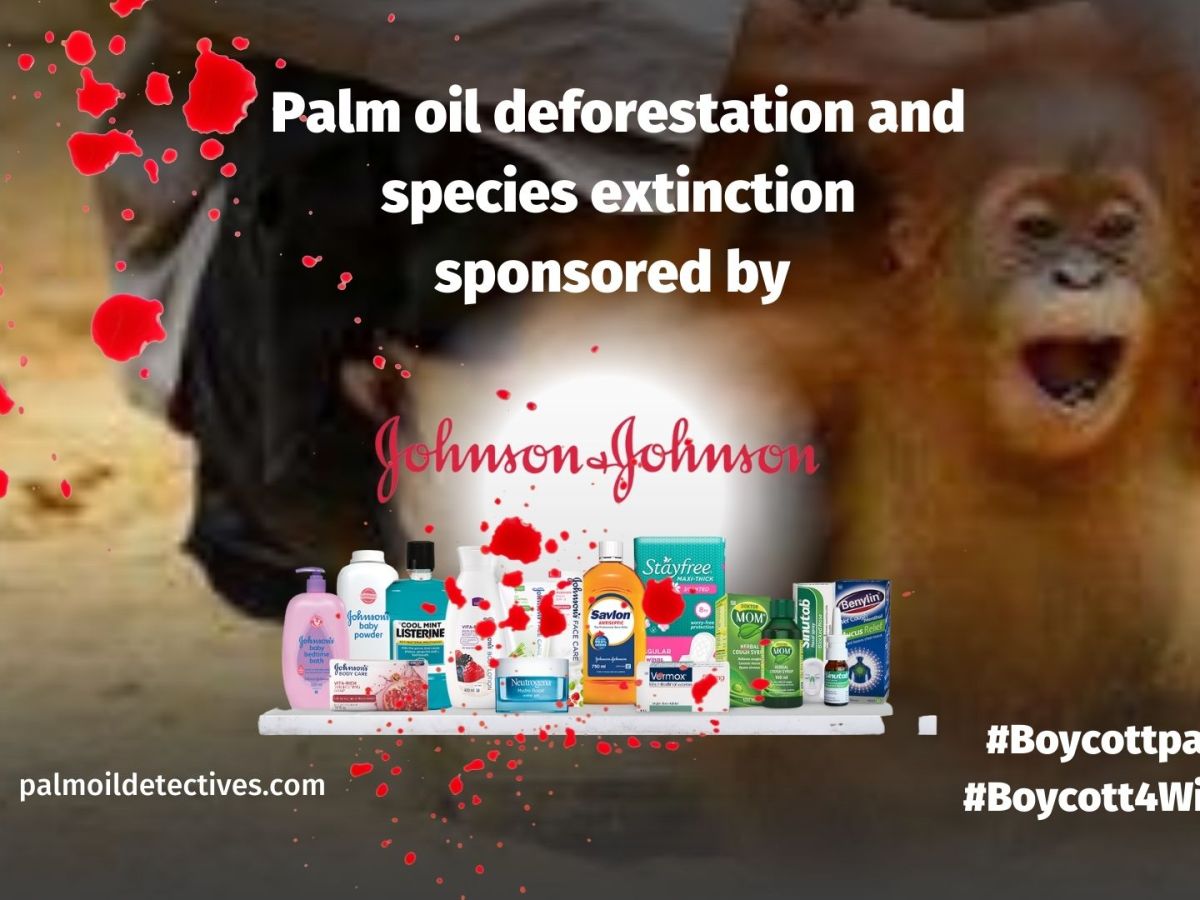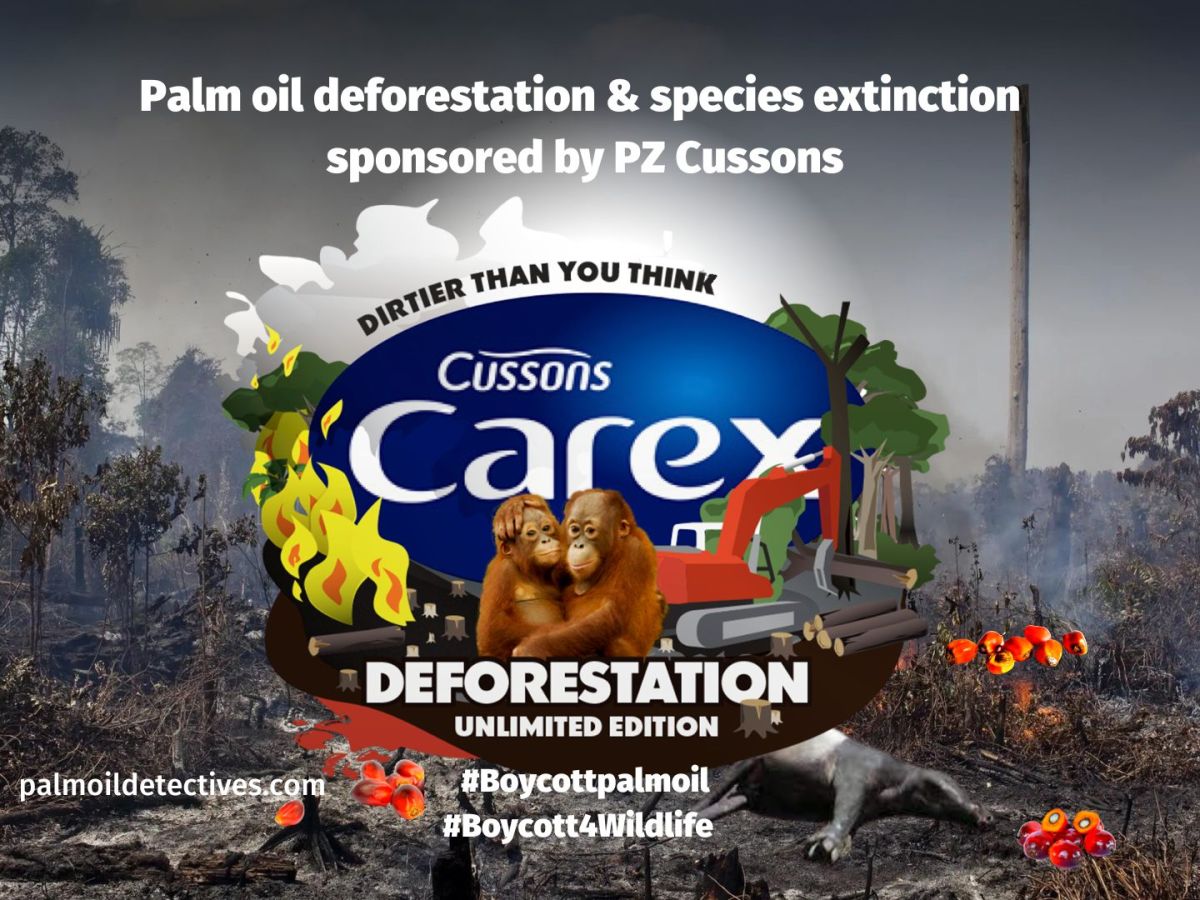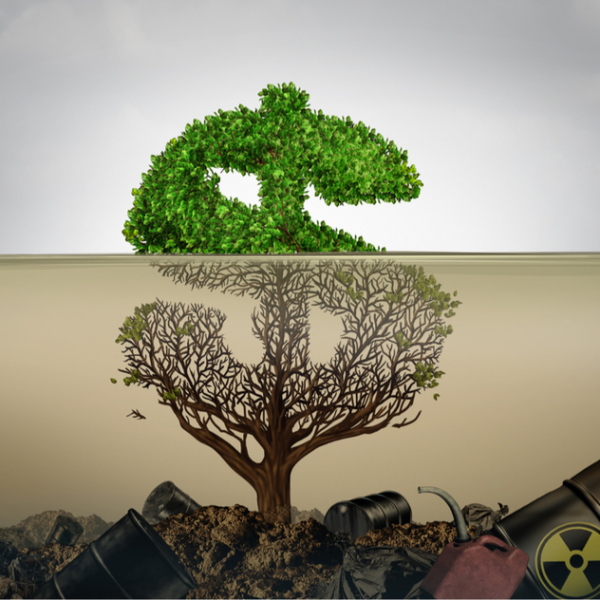“It turns out prevention really is the best medicine. We estimate we could greatly reduce the likelihood of another pandemic occuring by investing as little as 1/20th of the losses incurred so far from COVID into [wildlife and rainforest] conservation measures designed to help stop the spread of these viruses from wildlife to humans in the first place.”
~ Professor Stuart Pimm, Doris Duke Professor of Conservation Ecology at Duke University, who was co-lead author of the study.
Prevention is the best cure for #pandemics: Stopping tropical #deforestation and illegal wildlife trade is a minor cost compared to stopping zoonotic diseases – Prof. Stuart Pimm @DukeEnvironment #Boycottpalmoil #Boycott4Wildlife
Tweet
Tens of billions spent on conservation and surveillance would stop #pandemics spreading – a tiny amount compared to trillions spent on stopping pandemics – Prof. Stuart Pimm @DukeEnvironment #Boycottpalmoil #Boycott4Wildlife
Tweet
This is a media release from Duke University published on February 4, 2022. Original study: “The Costs and Benefits of Primary Prevention of Zoonotic Pandemics,” A.S. Bernstein et. al. Science Advances. DOI: 10.1126/sciadv.abl4183 View original.
Tens of billions spent on habitat and surveillance would avoid trillions of annual costs
DURHAM, N.C. – We can pay now or pay far more later. That’s the takeaway of a new peer-reviewed study, published Feb. 4 in the journal Science Advances, that compares the costs of preventing a pandemic to those incurred trying to control one.
“The bottom line is, if we don’t stop destroying the environment and selling wild species as pets, meat or medicine, these diseases are just going to keep coming. And as this current pandemic shows, controlling them is inordinately costly and difficult”.
~ Professor Stuart Pimm, Doris Duke Professor of Conservation Ecology at Duke University.
“It turns out prevention really is the best medicine,” said Stuart Pimm, Doris Duke Professor of Conservation Ecology at Duke University, who was co-lead author of the study. “We estimate we could greatly reduce the likelihood of another pandemic by investing as little as 1/20th of the losses incurred so far from COVID into conservation measures designed to help stop the spread of these viruses from wildlife to humans in the first place.”
A smart place to start, the study shows, would be investing in programs to end tropical deforestation and international wildlife trafficking, stop the wild meat trade in China, and improve disease surveillance and control in wild and domestic animals worldwide.
COVID, SARS, HIV, Ebola and many other viruses that have emerged in the last century originated in wild places and wild animals before spreading to humans, the study’s authors note. Tropical forest edges where humans have cleared more than 25% of the trees for farming or other purposes are hotbeds for these animal-to-human virus transmissions, as are markets where wild animals, dead or alive, are sold.
“Prevention is much cheaper than cures. Compared to the costs and social and economic disruptions associated with trying to control pathogens after they have already spread to humans, preventing epidemics before they break out is the ultimate economic bargain.”
~ Dr Aaron Bernstein of Boston Children’s Hospital and the Center for Climate, Health and the Global Environment at Harvard T.H. Chan School of Public Health.
Art: Pandemics and Zoonotic Disease by Jo Frederiks
“It’s been two years since COVID emerged and the cure still isn’t working. Not enough people are vaccinated in the U.S, where shots are available and we can afford them, and not enough vaccines are going to other countries that can’t afford them.”
The new study, by epidemiologists, economists, ecologists, and conservation biologists at 21 institutions, calculates that by investing an amount equal to just 5% of the estimated annual economic losses associated with human deaths from COVID into environmental protection and early-stage disease surveillance, the risks of future zoonotic pandemics could be reduced by as much as half. That could help save around 1.6 million lives a year and reduce mortality costs by around $10 trillion annually.

“We’re talking about an investment of tens of billions of dollars a year. Government have that kind of money.”
~ Professor Stuart Pimm, Doris Duke Professor of Conservation Ecology at Duke University.
Art: Eating animals causes pandemics by Jo Frederiks
One key recommendation of the new study is to use some of this money to train more veterinarians and wildlife disease biologists.
Another key recommendation is to create a global database of virus genomics that could be used to pinpoint the source of newly emerging pathogens early enough to slow or stop their spread, and, ultimately, speed the development of vaccines and diagnostic tests.
Aaron Bernstein of Boston Children’s Hospital and the Center for Climate, Health and the Global Environment at Harvard T.H. Chan School of Public Health, and Andrew Dobson of Princeton University were co-lead authors of the study with Pimm.
The need to put preventive measures in place as soon as possible is increasingly urgent, said Dobson. “Epidemics are occurring more frequently, they are getting larger, and spreading to more continents.”



JOURNAL
Science Advances
DOI
This is a media release from Duke University published on February 4, 2022. Original study: “The Costs and Benefits of Primary Prevention of Zoonotic Pandemics,” A.S. Bernstein et. al. Science Advances. DOI: 10.1126/sciadv.abl4183 View original.
ENDS
A 2019 World Health Organisation (WHO) report into the palm oil industry and RSPO finds extensive greenwashing of palm oil deforestation and the murder of endangered animals (i.e. biodiversity loss)
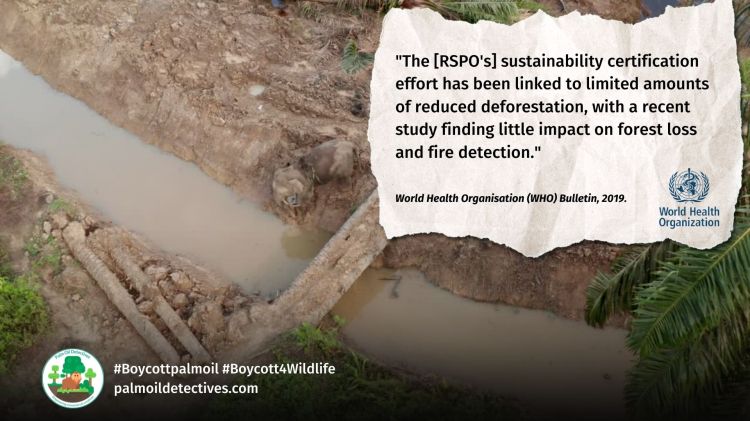

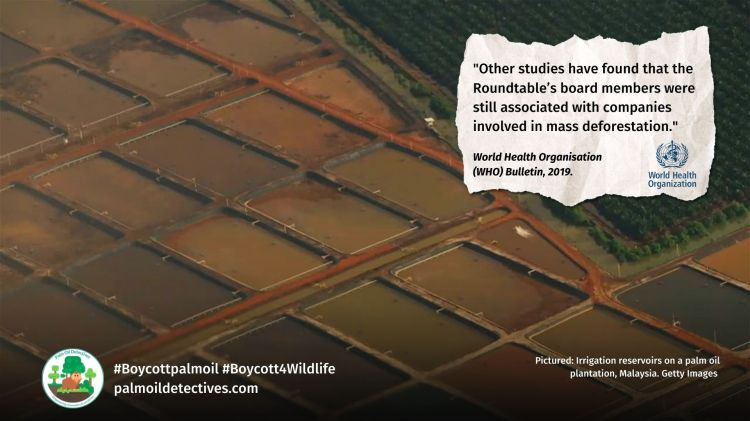
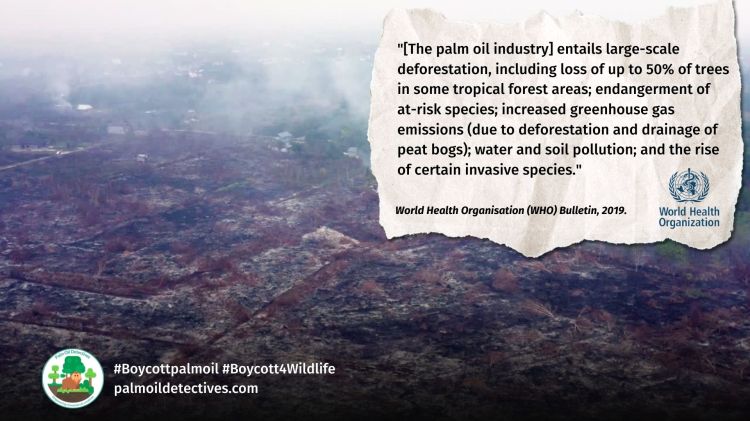
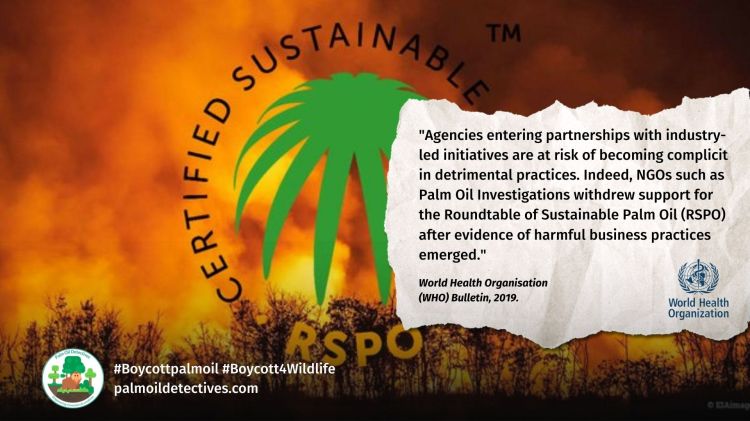
Big brands using “sustainable” RSPO palm oil yet still causing deforestation (there are many others)
Colgate-Palmolive
Despite global retail giant Colgate-Palmolive forming a coalition with other brands in 2020, virtue-signalling that they will stop all deforestation, they continue to do this – destroying rainforest and releasing mega-tonnes of carbon…
Read moreProcter & Gamble
Despite decades of promises to end deforestation for palm oil Procter & Gamble or (P&G as they are also known) have continued sourcing palm oil that causes ecocide, indigenous landgrabbing, and the habitat…
Read moreKelloggs/Kellanova
In late 2023, Kelloggs became Kellanova for their US arm. Savvy consumers have been pressuring Kelloggs for decades to cease using deforestation palm oil. Yet they actually haven’t stopped this. From their website:…
Read moreJohnson & Johnson
Global mega-brand Johnson & Johnson have issued a position statement on palm oil in 2020. ‘At Johnson & Johnson, we are committed to doing our part to address the unsustainable rate of global…
Read morePZ Cussons
PZ Cussons is a British-owned global retail giant. They own well-known supermarket brands in personal care, cleaning, household goods and toiletries categories, such as Imperial Leather, Morning Fresh, Carex, Radiant laundry powder and…
Read moreHere are some other ways you can help by using your wallet as a weapon and joining the #Boycott4Wildlife
Contribute to my Ko-Fi
Did you enjoy visiting this website?

Palm Oil Detectives is 100% self-funded
Palm Oil Detectives is completely self-funded by its creator. All hosting and website fees and investigations into brands are self-funded by the creator of this online movement. If you like what I am doing, you and would like me to help meet costs, please send Palm Oil Detectives a thanks on Ko-Fi.






